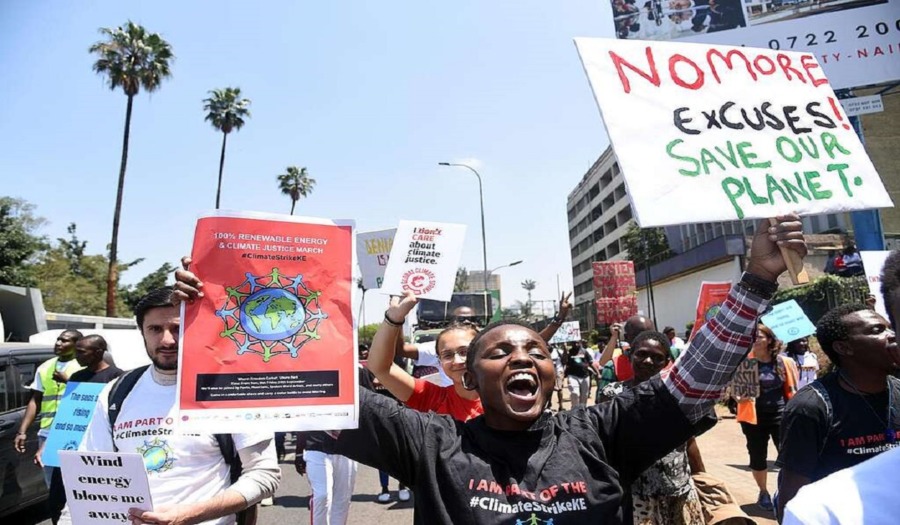Youth from 100 countries have just concluded the Climate Justice Camp in Lebanon, where they passionately demanded climate justice ahead of COP28. This week-long gathering brought together 450 young leaders from worldwide regions most affected by climate change. Their mission was clear: to develop strategies and demands that would compel decision-makers to prioritize climate justice in their policies and actions.
This remarkable event was the largest ever in the Middle East, uniting participants from nearly 100 countries in the Global South. Throughout the camp, these young leaders engaged in sessions focusing on crucial topics such as loss and damage, climate adaptation, and the urgent need for a fossil fuel phase-out. Their goal was not just to gain knowledge but also to establish cross-border networks capable of catalyzing change both locally and globally.
As the sun set on this powerful gathering, attendees converged around a captivating giant hand sculpture. This symbolic artwork was a collaborative effort constructed from over 400 embroidery pieces, banners, and textiles from the participants’ home countries. Pierre Abboud, a renowned Lebanese artist and designer who worked closely with the camp’s attendees throughout the week, described the sculpture as a symbol of unity for climate justice. He emphasized that each piece of material contained a personal story. When woven together, they formed a hand representing the unity felt by all in their collective fight for climate justice.
Agustin Maggio, an organizer of the Climate Justice Camp from Argentina and Program Leader of Roots, a camp partner, expressed the importance of this gathering. He stated that failure was not an option in the face of a climate emergency. The youth at the camp were actively combating the root causes of the crisis at every level, be it local, national, or global. Maggio also emphasized the youth’s vital role in shaping policy and political systems in a more progressive direction. He underscored the significance of building a strong sense of community and solidarity among those who share the same values, as it is through such unity that real systemic change can be achieved.
Ayisha Siddiqa, a camp attendee from Pakistan, highlighted the often-overlooked regions of the Middle East, which have been severely impacted by climate change. She stressed that these regions have paid a heavy price for the global reliance on fossil fuels, not only with their resources but also with their people’s lives. Siddiqa pointed out that environmental disasters on such a scale invariably lead to political and social upheaval, making it clear that urgent action is needed. She called for unity across borders, cultures, and languages, emphasizing the need to care for the planet and one another.
Fatima-Zahrae Tarib, a participant from Morocco, brought attention to the power of storytelling at the Climate Justice Camp. She emphasized that this unique space allowed young people, grassroots movements, and Indigenous communities to come together and share their stories and experiences. Tarib highlighted the importance of this personal connection and knowledge exchange in growing the climate justice movement. Despite the challenges and disappointments faced in addressing the climate crisis, she stressed that building a lasting community like this was the key to taking meaningful action and maintaining momentum.
In conclusion, the Climate Justice Camp in Lebanon served as a beacon of hope and unity for youth from diverse backgrounds and regions. Their demand for climate justice is unwavering, and their commitment to forging a better future for our planet is inspiring. As COP28 approaches, their voices and actions remind them that the fight against climate change is a global endeavour that requires collaboration, solidarity, and relentless determination. These young leaders have set an example for us all, showing that we can work towards a more sustainable and just world for future generations by coming together.









